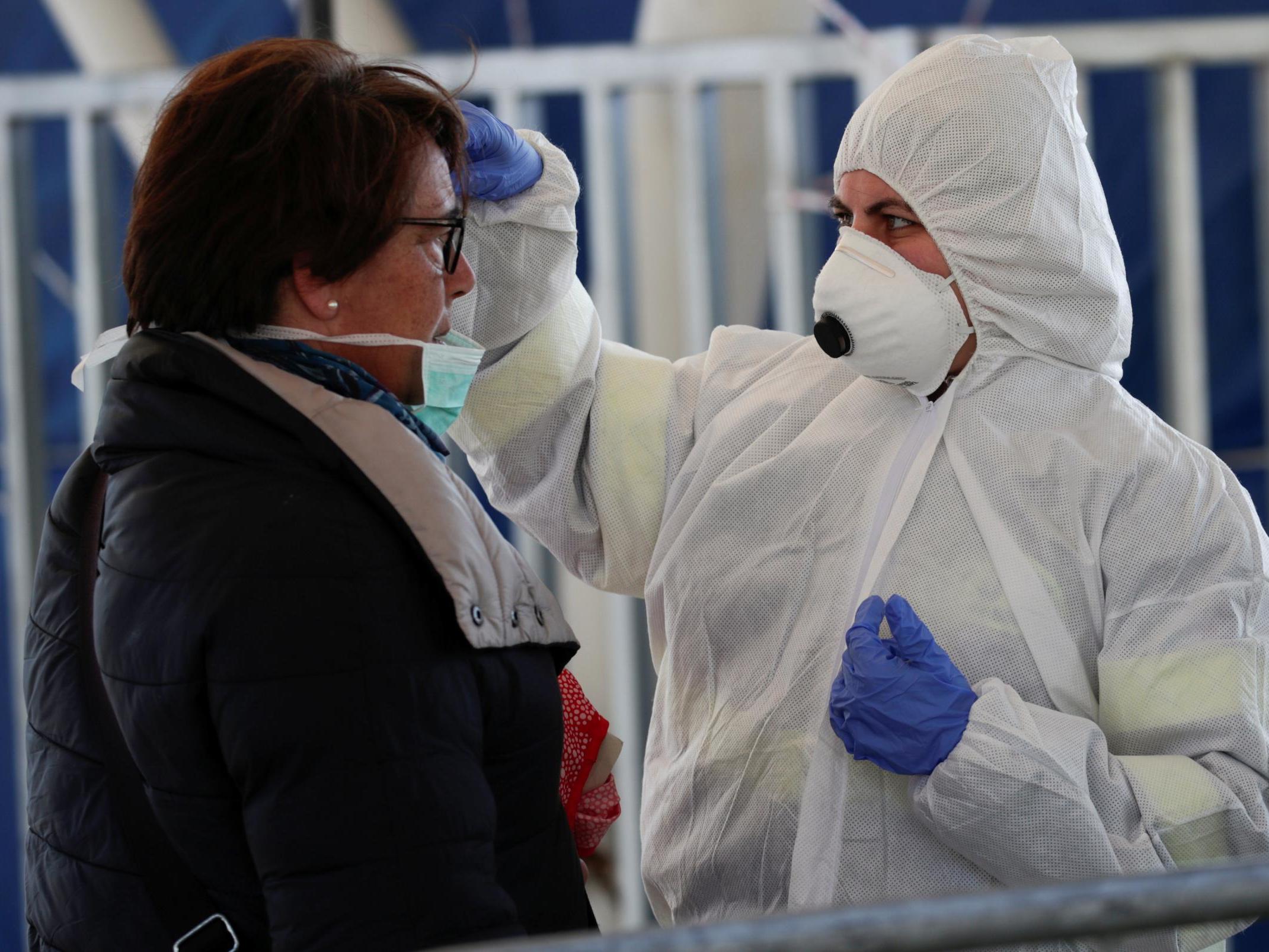Inside Italy’s coronavirus lockdown: Families torn apart as country goes into quarantine
'Being separated from your family is the worse feeling of all', resident tells Federica Marsi in Milan

At Milan’s Linate airport, Daniele Merlì hugged his seven-year-old son and wife before they approached a police officer checking travel documents. “I will see you soon, ok?”, he told the boy.
But Merlì is not sure he will be able to keep his word. Late on Monday, prime minister Giuseppe Conte signed a decree ordering the most severe travel restrictions in Europe, in a move that follows China’s blueprint to contain the virus.
The nationwide lockdown limits arrivals, departures and travel within the country, and is officially set to last until 3 April. But projections by the Institute of Health (ISS) foresee a peak in contagions in mid-April that would extend the quarantine way beyond its deadline.
Movement by air or land anywhere inside or outside the country is currently allowed only for emergencies or towards one’s town of residence, with fines and jail sentences potentially handed out to those who breach the rule. All public gatherings have also been cancelled, and all schools and universities closed.
Linate airport – a bustling hub for low-cost companies – was deserted on Tuesday morning as no more than a dozen passengers queued at the only open gate. Police officers collected a legally-binding self-certification stating the reason for the trip before allowing them to swipe their boarding pass.
In a nation where family runs deep into the cultural fabric, travel restrictions have touched a nerve.
Merlì’s partner, a Nigerian national, was boarding a flight back to her country of origin, where her son is attending school. Travel restrictions will make it impossible for them to divide their time between the two countries and visit Merlì, who works in Italy.
“I have no clue when they will be back,” the 48-year-old dad sighed.
Italy is the first country to adopt such draconian measures restricting travel in the European Union – which rests on the freedom to move and reside freely within the territory of the member states.
Fears of a looming pandemic have put the unity of the EU to the test. Austria, which shares a border with Italy and has reported 158 cases so far, was the first on Tuesday to announce a ban on all arrivals from Italy by car, train or plane, except for medical emergencies.
Flagship company Alitalia reduced the number of daily flights departing from Linate from 204 to 26 on Tuesday. Ryanair, Europe's largest budget flight airline carrier, also reduced its flight schedule to northern Italy.
The lockdown also deepened a gaping divide between Italy’s industrial north and the southern regions. Leonardo Orrù, a manual worker at a building site in Milan, was attempting to board a flight to his hometown on the island of Sardinia as he dreaded being laid off or falling ill in the prosperous Milan, where rents are among the most expensive in Europe.
“I need to be with my family,” the 24-year-old said, adding that it was unthinkable for anyone to face this situation away from their safety net.
An initial decree cordoning off the Lombardy region and 14 northern provinces had sent thousands flocking into railway stations on Sunday to board the last trains to the southern regions.
Orrù said some might have made a “rushed decision” that is likely to have had dire repercussions on the spread the virus, but that for workers coming from the south, the prospect of not being able to return home was a deep source of anxiety.
On Sunday confusion reigned in northern Italy over who could go where and under what circumstances. Authorities have since clarified that residents will be able to make the trip back to their hometowns, provided they self-quarantine and fill out a self-certification with which they legally attest to the truthfulness of their claims.
Yet, those who are regularly employed and have families in other regions of Italy must endure the separation or risk not being able to return to their workplace.
“My heart is split in half,” Rosj Camarda, a Sicilian employee at an energy service company told The Independent.
While her elderly parents live in Sant’Agata Militello, a small town some 80 miles from Palermo, her job and fiancé are in Milan.
“I had to choose between my family and my partner,” she said, adding that the aggressive media campaign calling on southerners to refrain from travelling home had made her realise the gravity of the situation.
“I decided to stay in Milan in order not to put my family at risk,” she said. “But being separated from your family and not being there for them in case something happens is the worse feeling of all.”
Join our commenting forum
Join thought-provoking conversations, follow other Independent readers and see their replies
Comments
Bookmark popover
Removed from bookmarks